- 1. What Are the Common Causes of Code P0300?
- 2. Related DTCs to P0300
- 3. FAQs
- 4. How much does it cost to fix the code P0300?
- 5. Can I continue driving with the P0300 code?
- 6. What sensors can cause P0300?
- 7. Can a clogged air filter cause P0300?
- 8. Can dirty fuel injectors cause P0300?
- 9. What is the most common cause of a code P0300?
OBD-II code P0300 is a generic diagnostic trouble code that signifies “Random/Multiple Cylinder Misfire Detected.” In simpler terms, this means your vehicle’s engine is experiencing misfires, but they’re sporadic and not confined to any single cylinder. It’s like the engine is having an irregular hiccup, affecting its smoothness and efficiency, without pointing directly to a specific cylinder as the culprit. This can be due to various reasons and requires a thorough investigation to pinpoint the root cause. Being generic, the P0300 code’s underlying reasons often vary based on the specific vehicle make and model.
Although P0300 points toward issues in the ignition system, it’s worth noting that not all misfires, especially random ones, come directly from ignition-related problems. If the trouble does originate from the ignition system, the corresponding code will have a number other than “0” at the end. For example, a misfire specifically in cylinder #4 would generate the code P0304, where “4” clearly identifies the problematic cylinder. Likewise, if particular cylinders misfire consistently, their codes will conclude with the number representing the affected cylinder (P0301-P0312).
What Are the Common Causes of Code P0300?
This code can be triggered by a variety of underlying issues. Here are some common causes:
- Spark Plugs. Worn out, damaged, or fouled spark plugs can fail to ignite the fuel mixture effectively, leading to misfires.
- Ignition Coils. If one or more ignition coils are faulty, they might not deliver the necessary electrical pulse to the spark plugs, causing misfires.
- Spark Plug Wires. Damaged or aged spark plug wires can disrupt the electrical current to the spark plugs.
- Distributor Cap and Rotor. On vehicles with a distributor, a worn cap or rotor can interrupt the spark distribution to the cylinders.
- Fuel Delivery Issues. Clogged or malfunctioning fuel injectors, faulty fuel pumps, or dirty fuel filters can hinder the appropriate fuel supply, leading to an improper air-fuel mixture.
- Air Intake System. Vacuum leaks, due to cracked or disconnected vacuum lines or faulty intake manifold gaskets, can alter the air-fuel mixture.
- Timing Issues. A malfunctioning timing belt or timing chain can disrupt the synchronization of the engine’s operations.
- Compression Issues. Low compression in one or more cylinders due to worn piston rings, damaged cylinder walls, or faulty valves can lead to misfires.
- Emission Control Systems. Faulty components like the EGR valve or oxygen sensors can affect combustion and cause misfires.
- PCM or ECU Malfunction. Highly unlikely, the problem could be a malfunctioning Powertrain Control Module or Engine Control Unit, which manages engine operations.
- Bad Fuel. Sometimes, using low-quality fuel or fuel contaminated with water can lead to misfires.
Related DTCs to P0300
P0301, P0302, P0303, P0304, P0305, P0306, P0307, P0308, P0309, P0310, P0311, P0312 (depends on cylinder number P03XX, where XX – a cylinder number) and P0316.
FAQs
How much does it cost to fix the code P0300?
Here’s a rough cost breakdown based on some of the common causes:
Spark Plugs. Replacing spark plugs is one of the least expensive repairs. The cost can range from $40 to $150 for parts and labor, depending on the vehicle and the quality of the spark plugs.
Ignition Coils. Depending on the vehicle, a single coil can cost between $70 to $300. If one coil serves multiple cylinders and it needs replacement, this would be your cost. However, if the car has individual coils for each cylinder, and multiple coils need replacing, costs can add up.
Spark Plug Wires. The cost of a set of spark plug wires can range from $30 to $80, with labor adding another $50 to $150.
Distributor Cap and Rotor. If your vehicle has a distributor, replacing the cap and rotor might run you between $50 to $200 for parts and labor.
Fuel Injectors. Replacing a single fuel injector can cost between $150 to $300, but if multiple injectors are faulty, the cost can increase proportionally.
Vacuum Leaks. Fixing a vacuum leak can range from as low as $100 for a simple hose replacement to $400 or more if the intake manifold gasket needs replacement.
Timing Belt or Chain. Addressing timing issues is more expensive. Replacing a timing belt can range from $250 to $1,000 or more, while a timing chain replacement can go from $500 to $2,000, including labor.
Compression Issues. Repairs addressing compression can be costly. Something like a valve replacement can range from $1,000 to $3,000 or more, while addressing piston rings can cost upwards of $3,000.
Emission Control Systems. Replacing an EGR valve can range from $150 to $500, and oxygen sensors typically cost between $200 to $500, including labor.
PCM/ECU Replacement. On the rare occasion that the ECU is the culprit, replacement can be expensive, often ranging from $500 to $1,500 or more.
Bad Fuel. If the cause is simply bad fuel, the remedy might involve draining the tank and refilling, which can cost between $100 to $500, depending on the labor and procedures involved.
Given this broad range of potential causes and their associated costs, addressing a P0300 code could be as low as $40 or as high as several thousand dollars for more complex issues.
Note that resolving the DTC P0300 can vary significantly in cost based on the root cause and the make, model, and year of your vehicle.
Can I continue driving with the P0300 code?
In case your vehicle displays a P0300 code, it’s best to address the issue as soon as possible and minimize driving until it’s resolved. If the check engine light is flashing as well, this typically indicates a severe misfire that’s allowing unburned fuel to enter the exhaust system, making it even more critical. While the vehicle might still be operable with a P0300 code, driving so isn’t recommended for several reasons.
What sensors can cause P0300?
Various sensors, when malfunctioning, can contribute to conditions that lead to this code. Most likely the following ones have to be checked: Crankshaft Position Sensor (CKP), Camshaft Position Sensor (CMP), Mass Air Flow (MAF) Sensor, Oxygen Sensors, Throttle Position Sensor (TPS), Fuel Injectors, Knock Sensor, Manifold Absolute Pressure (MAP) Sensor.
Can a clogged air filter cause P0300?
Yes, a clogged air filter can potentially contribute to a P0300 code, although it’s not the most common cause.
Can dirty fuel injectors cause P0300?
Yes, dirty or clogged fuel injectors can indeed contribute to a P0300 code. If they become clogged or dirty, they can disrupt a precise amount of fuel delivery into the combustion chamber.
What is the most common cause of a code P0300?
The most common cause is Ignition System faults, or more specifically: faulty spark plugs, bad ignition coils, damaged spark plug wires, faulty distributor cap and rotor.
We do an efforts to find, research and recommend the best products. So, we may receive commissions from purchases that you make after following the links in our product reviews.


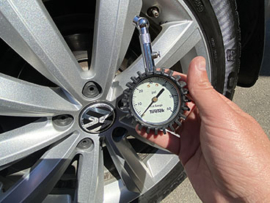
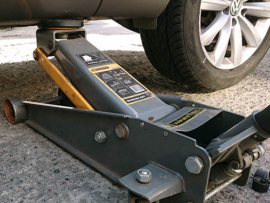
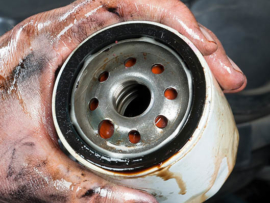
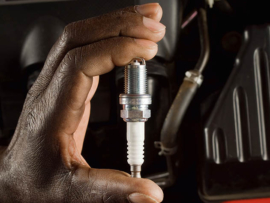
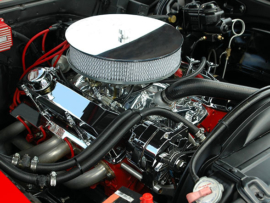
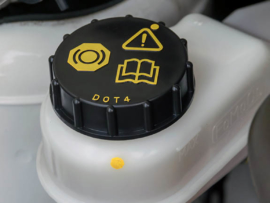
Leave A Comment